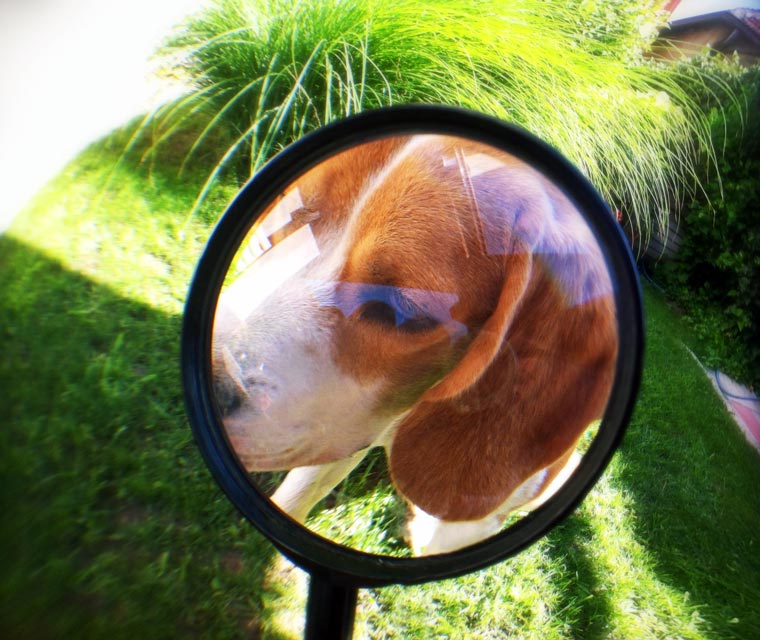Why Can't I Get Rid of Fleas?

If your dog has ever brought fleas into your home, you know the stress that situation can bring with it. Creepy crawlies in the house is no one's idea of fun.
And if you've ever tried to get rid of a flea infestation, you're probably aware that it can be tricky. Why is that? Shouldn't it be easy to treat fleas and banish them from your home?
Fleas Are Prolific
The first piece of the puzzle on why fleas can be hard to get rid of is that they multiply like…Well, like fleas. Which is to say that each female flea can lay up to 50 eggs a day after they have a blood meal. And that's just a single flea!
Flea eggs can hatch in two days if the conditions are right.
Yikes!
The second reason flea eggs add so much to a flea problem is that they aren't sticky. Fleas lay their eggs on the dog (or cat), but they don't stay there. They fall off all over the dog's environment as she moves around. So, flea eggs quickly end up all over your home, car, and yard.
The Flea Life Cycle
The flea eggs hatch into larvae, which eventually weave cocoons within which they become pupae. They can stay in the pupal phase for days or months, and once conditions are right, they hatch into adult fleas and look for a blood meal.
Flea Treatments
The reason fleas are so hard to treat is that many preventatives and treatments kill adult and larval fleas but not the pupal phase.
If you see fleas on your dog or in your home, talk to your veterinarian about the best product to use on your dog to kill adult fleas. And remember, all the animals in your home will need to be on treatment at the same time.
In addition to the adult flea treatment, you will need to treat the environment. That means lots of vacuuming and cleaning of the home. Focus on areas your dog hangs out in a lot. Wash all pet bedding every few days and vacuum daily or more frequently. Get rid of the vacuum bag after vacuuming because the fleas can hatch inside of it. Be sure to get under furniture and along baseboards, and don't forget to clean your car if your dog goes in it.
Many flea preventatives are not approved for young puppies. Check with your veterinarian. You can find more information here: "How to Treat Fleas in Puppies."
Vacuuming is a great way to rid your home environment of fleas because it gets all life cycles plus the food supply for the larvae and pupae. But, again, be sure to do it often and get rid of the vacuum bag right away.
Your yard may need to be treated to get rid of eggs, larvae, and pupae out there.
There are also environmental treatments for the house, but you should consult your veterinarian or a professional exterminator to determine whether that's necessary in your case. If so, be sure to heed all warnings on the insecticide about when pets and people should be allowed back in the treated areas.
It's crucial that you continue to keep flea preventative on all pets in your home during and after your flea treatment regimen because if at any point, pupae hatch into adults and find your pets for a meal, eggs will be laid and the cycle will intensify again.
How Do You Know If You Have a Flea Problem?
If there are pets around, fleas prefer to be on them than on people. Plus, they're small and fast. And dogs (and cats) infested with fleas aren't always itchy. Generally, only severe infestations or an allergy to flea saliva results in intense scratching.
You must check your dog often for fleas, and there's a technique to that because they love to hide. Learn more: "Dog Fleas: How to Look for Fleas on Your Dog."
You May Also Like These Articles:
Flea Allergy Dermatitis in Dogs
Apple Cider Vinegar as Flea Control for Dogs
Bubonic Plague: The Role of Dogs in the Spread of Plague
Disclaimer: This website is not intended to replace professional consultation, diagnosis, or treatment by a licensed veterinarian. If you require any veterinary related advice, contact your veterinarian promptly. Information at DogHealth.com is exclusively of a general reference nature. Do not disregard veterinary advice or delay treatment as a result of accessing information at this site. Just Answer is an external service not affiliated with DogHealth.com.


